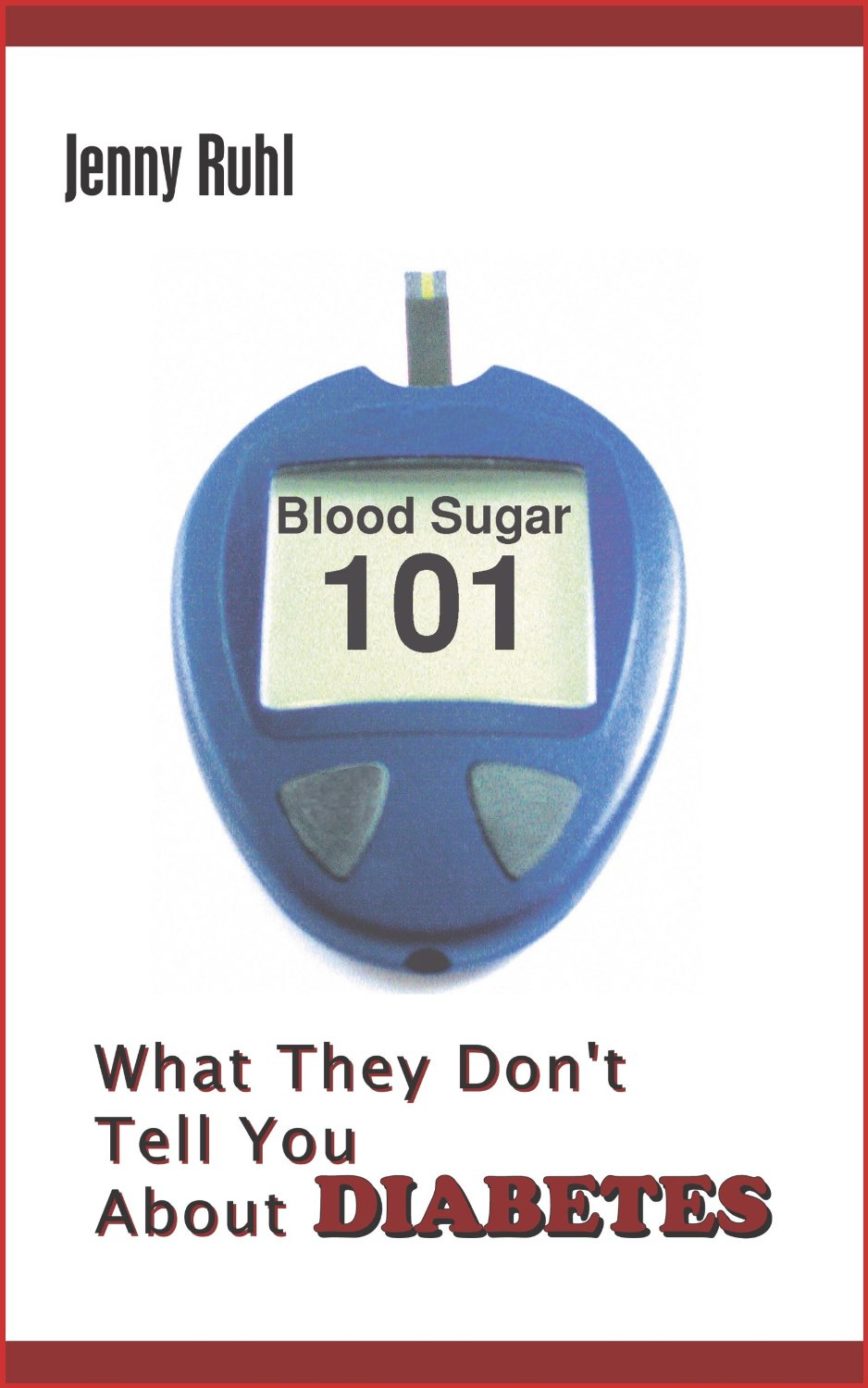Blood Sugar 101 is based on the author’s award winning website and as a newbie to diabetes I found the information in it extremely useful and laid out in a well written and ordered manner.
The book is basically a meta analysis of every single scientific paper covering diabetes that Jenny Ruhl has been able to collate, though I can’t help but feel that the book edges on the side of a gentle approach to the reader as it misses out a lot of the pertinent research that I’ve anecdotally read over the years and have been readdressing since I was diagnosed.
Each chapter of the book does answer a lot of the really important questions, but some are better than others, such as:
- What is normal blood sugar?
- How diabetes develops
- What really causes diabetes?
- Blood sugar levels and organ damage
- Must you deteriorate?
- How to lower blood sugar
- Making your diet work
- Diabetes drugs
- Insulin
- Supplements and healing foods
- Exercise
- Is it really type 2?
- Working with doctors and hospitals
All the chapters are great and informative but I feel the ones covering lifestyle, e.g. diet and exercise, leave a lot to be desired. The opening gambit of the book is “this is not your fault, it is a genetic problem you are not responsible for”, even going so far as to say that the onset of diabetes is the cause of obesity. This may be the case for type 1 diabetics but everything I’ve read about type 2 diabetes correlates with the fact that my lifestyle last year deteriorated and I bought this on myself due to my shitty diet, lack of exercise and putting on 25kg of weight. Blaming yourself and taking responsibility for your actions are not the same thing.
The book also doesn’t mention any of the research from Newcastle University suggesting that type 2 diabetes is caused by fat cells damaging the pancreas and that reversal might be possible simply by losing weight. The impression I’m left with after reading is that personal responsibility seems to be completely removed from causality, not much can be done and you should look forwards to a life time of medication.
Maybe I’m naively hopeful, and whilst the book is definitely informative and I recommend reading it, it does feel that the oversight of having a gentle approach to the lifestyle surrounding diabetes is a horrible marketing ploy designed not to offend readers who’s diabetes may have been caused by the kind of awful lifestyle I was leading and who do not want to take control and admit it.
Here for example is a fantastic story about Reddit user ketoapsey who, using a ketogenic diet, put on 4kg of muscle, dropped her HbA1c down to 4.5% and now uses a lot less insulin to manage her type 1 diabetes, over a 6 month period. Her results are amazing and very inspiring.

